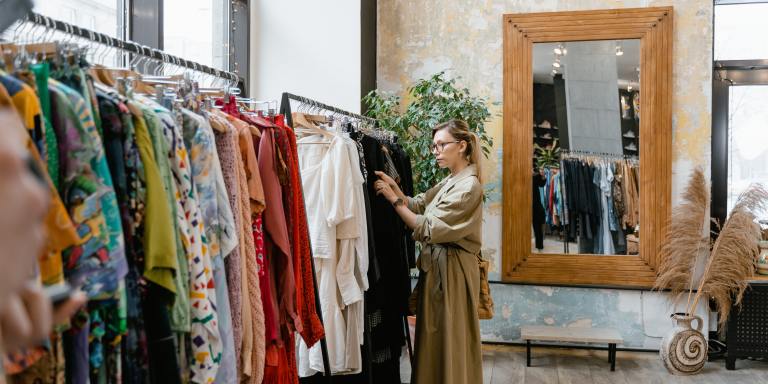
Back stiffened by intrigue and fright, 24-year-old Maggie glances from computer to bedroom door. It’s 7am, and her boyfriend Nigel could emerge at any minute to find her seated at his desk, staring at his laptop. Quickly, she types her name in the search bar of Nigel’s Gmail account, which he never bothers signing out of.
Immediately, a trove of what every snoop covets—information, of course—pops up. Except that what Maggie learns through scouring emails and chat threads for the next fifteen minutes straight is incredibly disturbing.
In Gchats with friends, Nigel brags about “plowing” several other women during the time he’d sworn exclusivity to Maggie. When he bothers discussing his long-term girlfriend and roommate at all, Nigel’s tone is alarmingly crude and disrespectul. He references “last night’s punishing” on more than one occasion, and brags about sending Maggie to bed “bowlegged” after “banging her brains out.”
“He made me sound like a pathetic bimbo,” says Maggie, who admits that cyber snooping “isn’t the coolest thing to do,” but also claims that the morality of her behavior is “beside the point.” Nigel has since moved out, and Maggie has moved on.
The day she shunned “heart-pounding guilt” to invade Nigel’s privacy, Maggie recalls being driven by a distinct sense that something was seriously wrong with her eight-month relationship. Some would argue that by breaking her boyfriend’s trust, Maggie deserved the bleak but truthful awakening she got. Others would say that she was smart to trust her gut.
Whatever the case, curiosity often trumps impulse control for many of us. And our biology might be to blame.
* * *
According to Dr. Helen Fisher, PhD, a Research Professor at Rutgers University, snooping has been prevalent since humans were hunter-gatherers. “In our modern world,” Fisher explains, “where people can really be autonomous, we’re probably seeing it much more.” Fisher also notes that there’s an anthropological term for doing whatever it takes to ensure that your partner is right for you: mate guarding.
Essentially, snooping can be viewed as a self-protective measure that prevents you from committing to the wrong life partner. So in a way, by investigating whether her boyfriend was a trustworthy, eligible mate, Maggie was merely following her survival instinct.
The same goes for Kim, a 28-year-old financial analyst who decided to comb through on-again, off-again boyfriend Johnnie’s phone one afternoon. Kim uncovered similarly upsetting news: a string of intimate messages Johnnie had sent to a Mystery Girl expressing how much he missed her.
“I wanted to vomit in my mouth when I read those texts, but I never bothered confronting Johnnie because I knew right then it was over,” says Kim.
* * *
Neither Kim nor Maggie’s story surprises relationship expert Rachel Sussman, LCSW, who believes that “if something smells fishy, it’s in our DNA to find out what’s going on.” That said, Sussman is troubled by the idea of couples insisting on total transparency.
“In order to have a good relationship and a good sex life, you shouldn’t know everything about each other,” Sussman says.
A poll conducted by Virgin Mobile echoes this sentiment, showing that 73 percent of cellphone users who reported checking their partners’ phones “found out things they later wished they hadn’t.”
Indeed, many who have made unpleasant discoveries through cyber snooping now stand by the “just don’t go there” philosophy.
Take Sammy, a 33-year-old hair stylist engaged to a 40-something chef. One year into dating, Sammy felt compelled to poke around after listening to her boyfriend reminiscence a little too fondly about his playboy past. At first, Sammy was bothered to learn that her fiancé was communicating inappropriately with other women. Ultimately, though, she decided that she could live with what others might view as a betrayal.
“If it meant that he’d leave me alone instead of begging me for sex all the time, I was fine with it,” she says.
Veronica, a 25-year-old in business development, embraces a similar doctrine. Three months into her relationship with Gary, Veronica received a phone call from Gary’s ex-wife, whom she didn’t even know about at the time.
Since Gary had kept his first marriage a secret, Veronica was inspired to dig further. Whenever she got the chance, she would comb through Gary’s texts and emails. Five years later, however, she had a revelation: “I had to ask myself: Do you want to have a bad day and find something on your significant other’s phone, or do you want to stay oblivious and have a good day?” A few months after pledging to abstain from snooping altogether, Veronica and Gary married.
Taylor, a 30-year-old writer trying to repair a relationship with a girl who once read his text messages constantly, agrees wholeheartedly with Sammy and Veronica.
“If anyone reads something they’re not intended to see, it can really sting,” he warns. Taylor urges couples to communicate directly before resorting to prying on the sly.
* * *
Regardless of what’s “right” or “wrong,” when it comes to cyber snooping, there are always repercussions to consider. After all, you can’t unlearn whatever you discover. Plus, Dr. Fisher cites that the novelty and fear inherent to detective work can increase testosterone levels, which in turn drives up our dopamine count. So in addition to the relationship stakes, remember that the behavior is potentially addictive. ![]()

